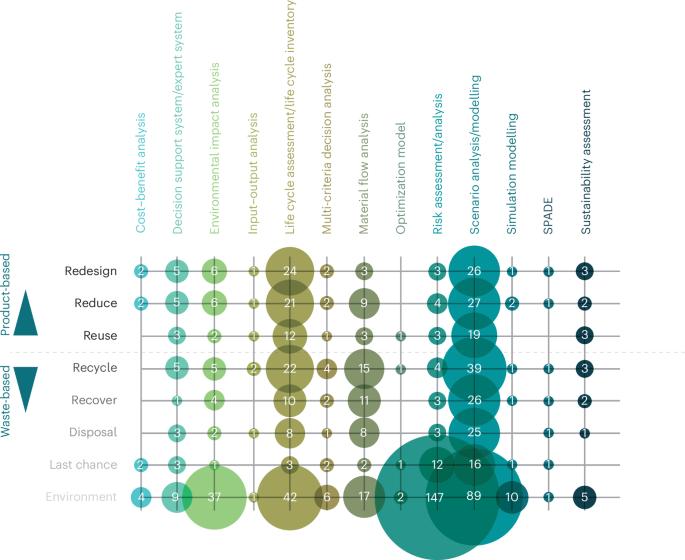Strengthening global plastic policy with systems analysis
IF 27.1
1区 环境科学与生态学
Q1 ENVIRONMENTAL SCIENCES
引用次数: 0
Abstract
Over the last decades, plastic pollution has predominantly been considered a downstream issue, focusing on marine litter and waste management challenges. However, this limited focus is insufficient in responding to the urgency, complexity and scale of the problem. Therefore, the scientific community increasingly calls for a systemic focus on plastic pollution, especially with respect to designing effective policy interventions. Extant literature has documented examples of science-based policy, showing that systems tools have successfully informed policies targeting plastic pollution. With a potentially first, global plastics treaty currently under negotiations, we analyse the way in which systems-based techniques are used in literature to generate evidence regarding plastic pollution and to inform policy processes. We systematically select 324 publications from the systems-based plastic pollution literature and analyse trends, patterns and context in which systems analysis tools are used. We find that the application of these tools is limited and still highly focused on the downstream impacts of plastics. Thus, we make two key recommendations for harnessing systems analysis techniques to strengthen the efforts at developing an ambitious, science-based treaty: the employment of an emitter perspective and supporting a just transition through systems literature. Plastics pollution has intertwined environmental, economic and social consequences calling for holistic solutions that require systems analysis. This study evaluates how and to what extent systems analysis tools are used in research on plastic pollution to support policy design.

通过系统分析加强全球塑料政策
在过去的几十年里,塑料污染主要被认为是下游问题,重点是海洋垃圾和废物管理挑战。然而,这种有限的重点不足以应付这一问题的紧迫性、复杂性和规模。因此,科学界越来越多地呼吁系统关注塑料污染,特别是在设计有效的政策干预方面。现有文献记录了基于科学的政策的例子,表明系统工具已经成功地为针对塑料污染的政策提供了信息。目前正在谈判的可能是第一个全球塑料条约,我们分析了文献中使用基于系统的技术来生成有关塑料污染的证据并为政策过程提供信息的方式。我们系统地从基于系统的塑料污染文献中选择了324份出版物,并分析了使用系统分析工具的趋势、模式和背景。我们发现这些工具的应用是有限的,并且仍然高度关注塑料的下游影响。因此,我们提出了两项关键建议,以利用系统分析技术加强制定雄心勃勃的、基于科学的条约的努力:采用排放国视角,并通过系统文献支持公正的过渡。塑料污染对环境、经济和社会的影响交织在一起,需要系统分析的整体解决方案。本研究评估了在塑料污染研究中如何以及在多大程度上使用系统分析工具来支持政策设计。
本文章由计算机程序翻译,如有差异,请以英文原文为准。
求助全文
约1分钟内获得全文
求助全文
来源期刊

Nature Sustainability
Energy-Renewable Energy, Sustainability and the Environment
CiteScore
41.90
自引率
1.10%
发文量
159
期刊介绍:
Nature Sustainability aims to facilitate cross-disciplinary dialogues and bring together research fields that contribute to understanding how we organize our lives in a finite world and the impacts of our actions.
Nature Sustainability will not only publish fundamental research but also significant investigations into policies and solutions for ensuring human well-being now and in the future.Its ultimate goal is to address the greatest challenges of our time.
 求助内容:
求助内容: 应助结果提醒方式:
应助结果提醒方式:


